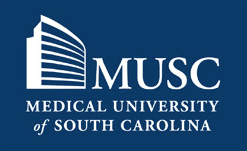MUSC Weight Management Center study finds losses with commercial model can lead to overall health gains
November 16, 2016Weight Watchers program model evaluated for patients with diabetes
Patients with diabetes, who have struggled to achieve lasting weight loss, now have study evidence that suggests an adapted, well-known weight loss program combined with complementary diabetes education can lead to weight loss and improved control of their diabetes.
Type 2 diabetes diagnoses continue to rise in a nation battling an obesity and overweight epidemic, and patients and health care providers alike need program and treatment solutions that not only lead to weight loss, but also improved diabetes control for overall improvements in health. Only 72 percent of adults with diabetes are diagnosed and of them, only 57 percent are able to control glycemic levels. Researchers already know that modest weight loss and improved glycemic control can occur from intensive clinical interventions for these patients, but previous data have been sparse on the effects of commercial weight loss programs for this growing and widespread patient population.
“Patients and providers alike need a broader arsenal of treatment options for managing diabetes, in particular options that are more accessible to the majority of people with diabetes,” noted principal investigator Patrick M. O’Neil, Ph.D., MUSC Weight Management Center director and professor in the Department of Psychiatry and Behavioral Sciences. “In this study we examined an enhancement of the widely available Weight Watchers program to make it potentially more useful for people with Type 2 diabetes.”
The study, published in the November 2016 issue of Obesity was recently presented at the journal’s symposium Nov. 2 at a meeting during Obesity Week held by The Obesity Society in New Orleans. Funded by Weight Watchers International, it examined the effects on glycemic control and weight loss of the standard Weight Watchers program, combined with telephone and email consultations with a certified diabetes educator (WW), when compared with standard diabetes nutrition counseling and education (standard care, SC). In a 12-month randomized controlled trial at 16 U.S. research centers, including MUSC, 563 adults with Type 2 diabetes spanning multiple ethnicities were assigned to either the commercially available WW program (regular community meetings, online tools), plus telephone and email counseling from a certified diabetes educator, or to SC (initial in-person diabetes nutrition counseling and education, with follow-up informational materials). All of the patients were already receiving treatment of their diabetes by a physician not associated with the study; all but 95 percent were on one or more diabetes medications at the time they entered the trial although their diabetes was not controlled within the recommended range. At the conclusion of one year, the patients in the WW group saw better overall glycemic control and more of them achieved ideal glycemic control versus the standard care group; the WW group lost more weight than the SC group; the WW group was able to reduce use of diabetes medications more than the SC group; and the WW group had greater reductions in waist circumference than the SC group. Both groups saw reduction of cardiovascular risk factors with small improvements in all lipid levels except triglycerides, and on blood pressure. However, there were no statistically significant differences between the groups on those cardiovascular outcomes.
“These results are promising because for many patients, finding an affordable, acceptable and available treatment plan is crucial for lasting change,” O’Neil said. “Through this study we’ve been able to demonstrate that a commercial weight loss program such as Weight Watchers, when paired with diabetes-specific counseling and education efforts, can make a big difference for these patients and may be easier for them to adopt and accept than other more intensive clinical options.”
About MUSC:
Founded in 1824 in Charleston, The Medical University of South Carolina is the oldest medical school in the South. Today, MUSC continues the tradition of excellence in education, research, and patient care. MUSC educates and trains more than 3,000 students and residents in six colleges (Dental Medicine, Graduate Studies, Health Professions, Medicine, Nursing, and Pharmacy), and has nearly 13,000 employees, including approximately 1,500 faculty members. As the largest non-federal employer in Charleston, the university and its affiliates have collective annual budgets in excess of $2.2 billion, with an annual economic impact of more than $3.8 billion and annual research funding in excess of $250 million. MUSC operates a 700-bed medical center, which includes a nationally recognized Children’s Hospital, the Ashley River Tower (cardiovascular, digestive disease, and surgical oncology), Hollings Cancer Center (a National Cancer Institute-designated center), Level I Trauma Center, Institute of Psychiatry, and the state’s only transplant center. In 2016, U.S. News & World Report named MUSC Health the number one hospital in South Carolina. For more information on academic programs or clinical services, visit musc.edu. For more information on hospital patient services, visit muschealth.org.













